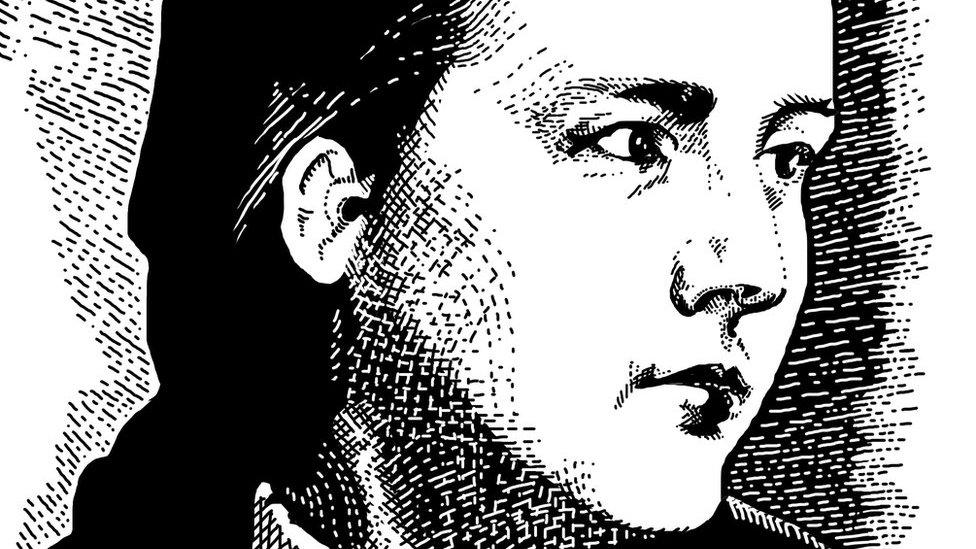First female medical students get degrees at last
- Published
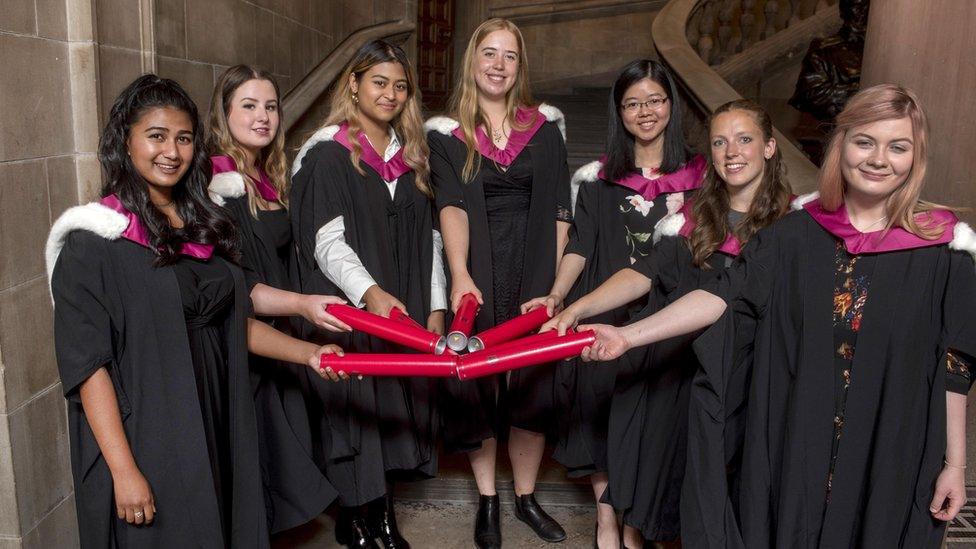
Current students Sorna Paramananthan, Megan Cameron, Simran Piya, Ella Crowther, Mei Yen Liew, Izzie Dighero and Caitlyn Taylor accepted degrees on behalf of the Edinburgh Seven
Seven women who were prevented from graduating as doctors 150 years ago have been awarded posthumous honorary degrees in medicine.
The "Edinburgh Seven" were the first women admitted to study medicine in Britain when they enrolled in 1869.
But they faced prejudice and were ultimately prevented from qualifying as doctors.
The long campaign by the seven eventually led to women being allowed to study medicine.
They blazed a trail for the rights of women to study at university and practise medicine but they were banned from graduating after academics voted against it.
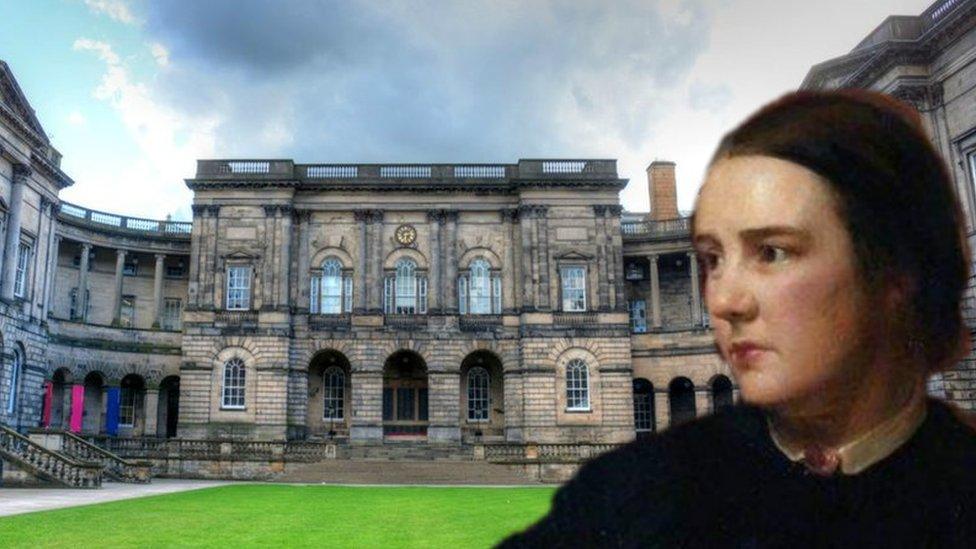
Sophia Jex-Blake and her six fellow female students have finally been granted their degrees from Edinburgh University
A full-scale riot broke out when the women turned up to sit an anatomy exam at the university and male students pelted them with mud.
The seven pioneers - Sophia Jex-Blake, Isabel Thorne, Edith Pechey, Matilda Chaplin, Helen Evans, Mary Anderson Marshall and Emily Bovell - have been awarded honorary degrees on the 150th anniversary of their matriculation at the University of Edinburgh.
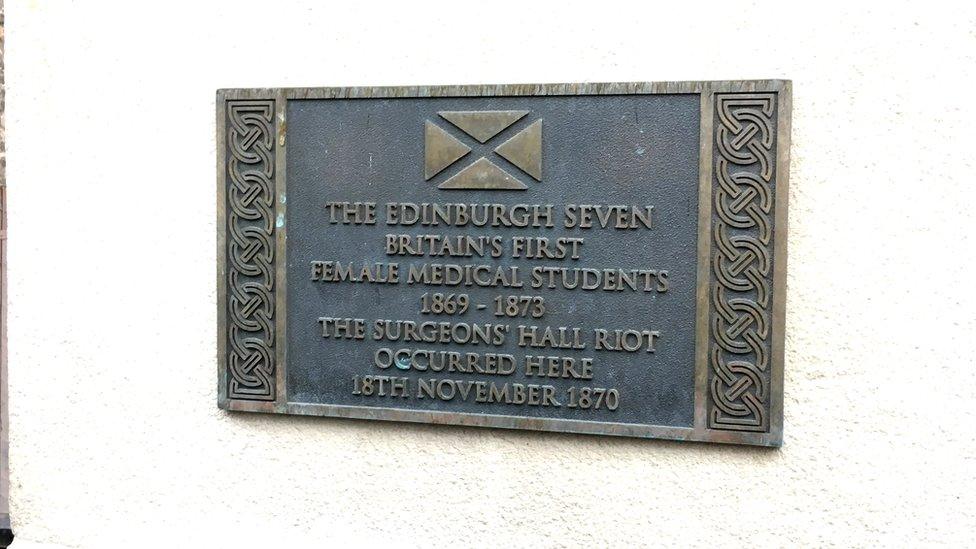
The riot that stopped the seven sitting an exam at Surgeon's Hall is commemorated there
The degrees were collected on their behalf by a group of current students at Edinburgh Medical School.
The graduation is the first in a series of University events to commemorate the achievements and significance of the Edinburgh Seven.
As part of the celebrations, the University would like to hear from any relatives of the pioneering group.
Third year medical student Simran Paya, who accepted the honorary degree on behalf of Sophia Jex-Blake, said: "We are honoured to accept these degrees on behalf of our predecessors, who are an inspiration to us all."
'Widen access'
Prof Peter Mathieson, principal and vice-chancellor of the university, said: "We are delighted to confer the degrees rightfully owed to this incredible group of women.
"The segregation and discrimination that the Edinburgh Seven faced might belong to history, but barriers still exist that deter too many talented young people from succeeding at university.
"We must learn from these women and strive to widen access for all who have the potential to succeed."
The Royal College of Surgeons of Edinburgh unveiled a plaque commemorating the medics' achievements in March last year.

Who were the "Edinburgh Seven"?
Sophia Jex-Blake led the women's education charge in Britain, but faced opposition to her aspirations from an early age.
She wanted to be a doctor in a time when it was unthinkable for a woman to be one.
After a period of study in Edinburgh, Jex-Blake travelled to the United States in 1865 to learn more about women's education.
Following her dream of becoming a doctor, she was refused entry to Harvard on gender grounds, a rejection letter reading: "There is no provision for the education of women in any department of this university."
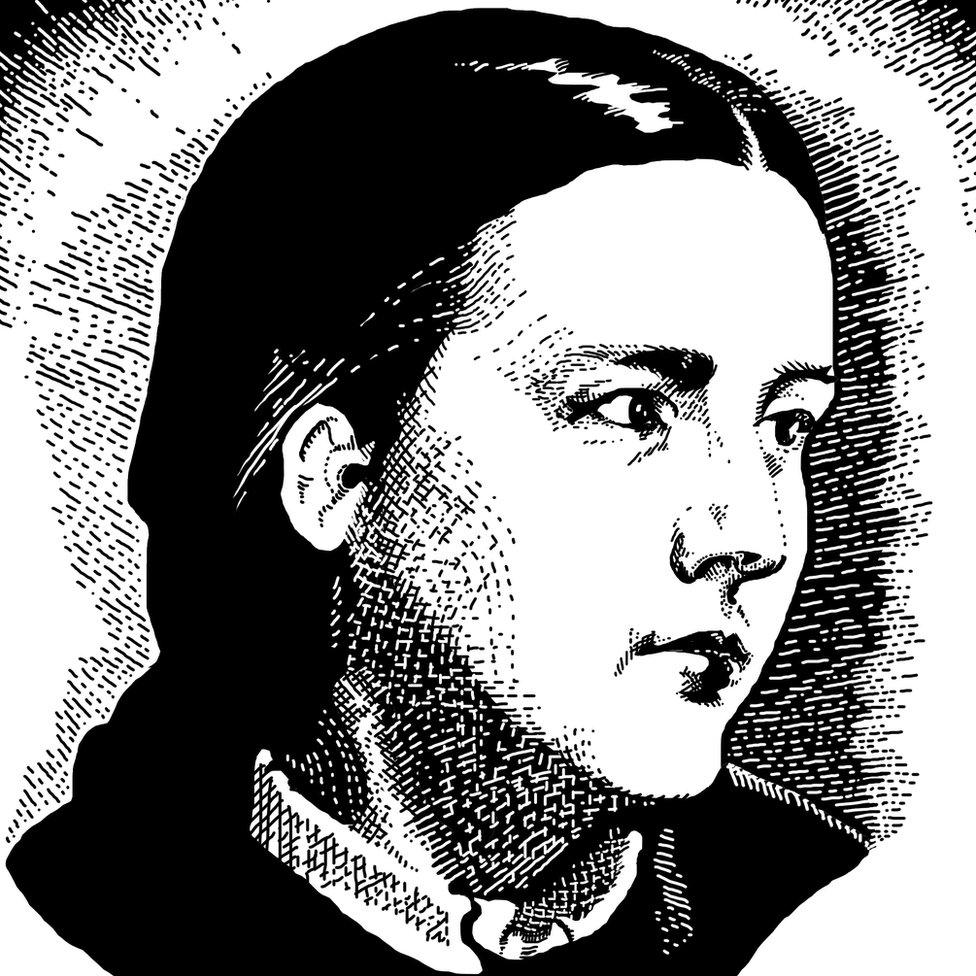
Sophia Jex-Blake was rejected from Harvard because she was a woman

Jex-Blake looked to Scotland, where a more enlightened view on education was emerging.
In March 1869 after much internal strain, Edinburgh University approved Jex-Blake's application, but it was eventually rejected by the university court on the grounds the university could not make the necessary arrangements "in the interest of one lady".
A campaign carried in The Scotsman newspaper called on more women to join her. The story gathered attention and six more women joined her cause, pushing to study medicine in Edinburgh.
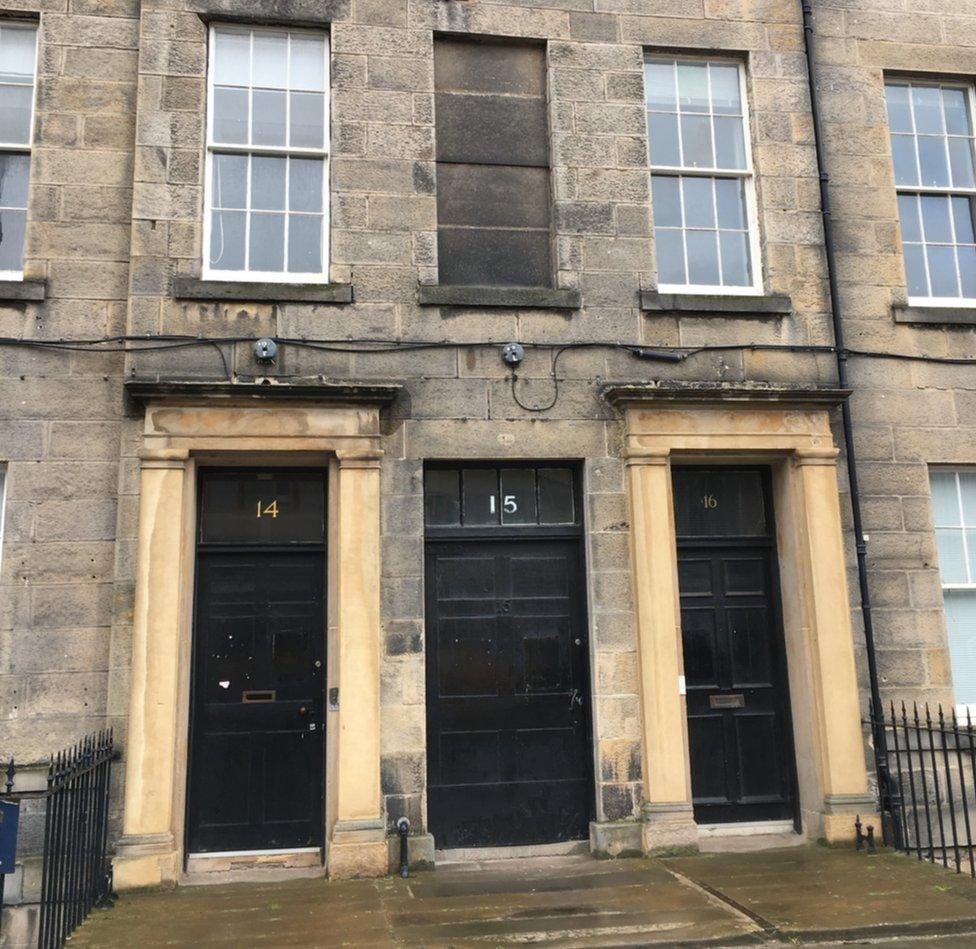
The Edinburgh Seven lived at 15 Buccleuch Place in the city

In November 1869, the women passed the matriculation exam and were admitted to the university medical school.
The university charged them higher fees and the women, led by Jex-Blake, were forced to arrange lectures for themselves due to a loophole whereby university staff were permitted but not required to teach women. This was just the start of the problems they would face.

After her Edinburgh rejection, Jex-Blake was instrumental is setting up the London School of Medicine for Women.
But there was still nowhere for women to sit their exams until 1876 when the Enabling Bill gave medical examining bodies the right to admit women.
The University of Edinburgh allowed women to graduate in 1894 and the first doctors graduated in 1896. They still had to organise their own tuition.
- Published31 October 2018
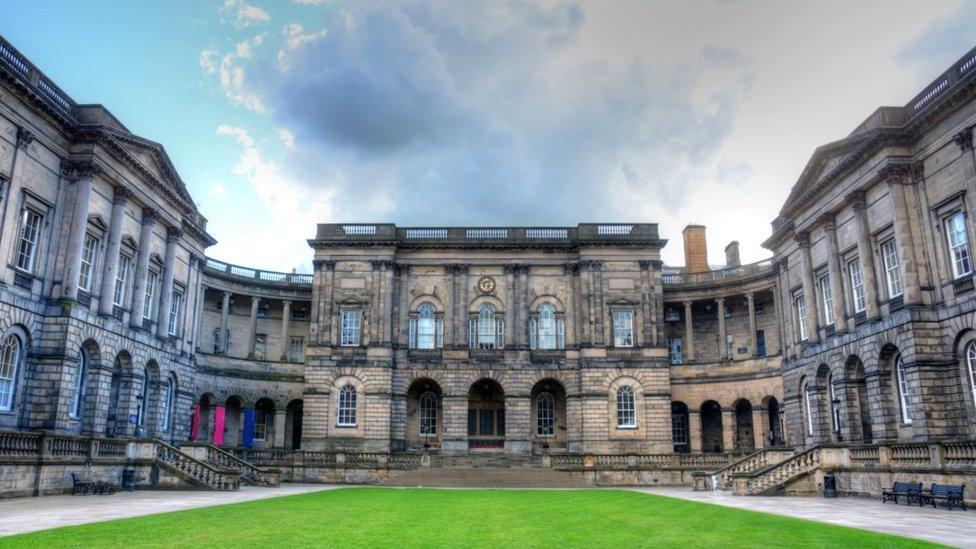
- Published16 November 2018
